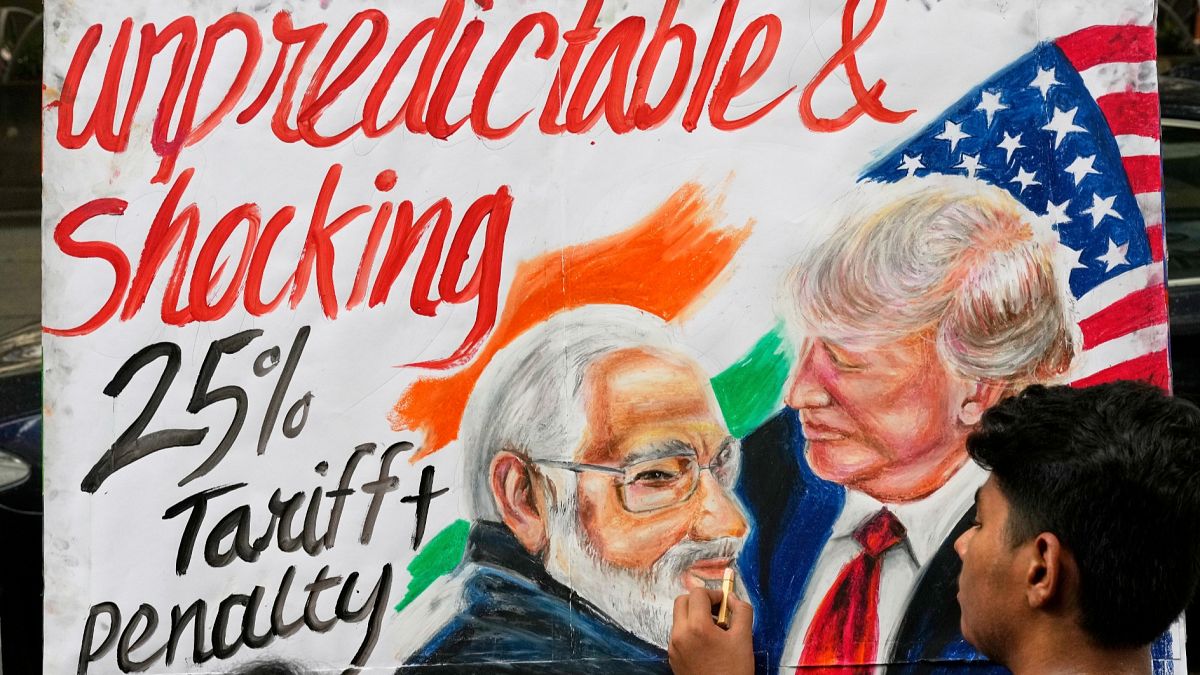

In a world where dynamics shift swiftly, recent events serve as a testament to the complex interplay of politics, diplomacy, and social issues. At the heart of the matter, the ongoing interactions between leading nations highlight both alliances and challenges.
India and the United States are navigating a rocky path in their bilateral relationship. The Trump administration’s insistence that India ceases its purchase of Russian oil has set the stage for significant fiscal tensions. New Delhi finds itself pondering the balance between maintaining cost-effective energy imports and dealing with mounting US tariffs, a ripple effect that draws scrutiny to India’s long-standing non-alignment policy. As the dialogues continue, close attention will be aligned with both domestic and international spheres.
Meanwhile, on the European front, updates from the European Union signal a fluid approach toward trade negotiations with the United States. The EU Commission has chosen to suspend retaliatory measures against American tariffs, indicating a preference for continued dialogue. As both parties strive toward a formalized tariff agreement, the postponement underscores the strategic patience and diplomacy inherent in global economic affairs.
In France, Prime Minister François Bayrou is engaging the public through podcasts and YouTube to discuss his proposed budget cuts for 2026. The €44-billion savings initiative aims to reshape the nation’s financial course, even as it encounters public dissent. The initiative reflects a broader trend of leaders leveraging digital platforms to directly communicate and justify policy measures to citizens.
European military dynamics are also at play, as exemplified by the Netherlands becoming the pioneer NATO member to participate in a novel weapons initiative, delivering vital US arms to Ukraine. This part of a collective effort by NATO symbolizes a unified stance against ongoing regional threats, exemplifying transatlantic cooperation in times of crisis.
In the UK, a bilateral treaty with France signifies a new approach toward managing migration, where asylum seekers arriving via small boats may face returns across the Channel. This initiative, backed by the EU, aims to establish a systematic, albeit controversial, handling of migration issues. Such measures showcase the intricate balance between domestic policy needs and international human rights considerations.
Shifting focus to the Americas, Brazil faces a turbulent political landscape with former President Jair Bolsonaro under house arrest amid coup allegations. The legal proceedings mark a potent reminder of the intricate link between governance and legal accountability in democracies. Concurrently, a surge in protest voices echoes along the streets of New York against the Gaza conflict, highlighting the global civil response to regional struggles and humanitarian concerns.
On a lighter note, innovative measures by American farmers using music by Scarlett Johansson and AC/DC to ward off wolves exemplify creative solutions in agricultural management. This charming anecdote serves as a delightful reminder of human ingenuity in the face of everyday challenges.
Thus, as the world navigates these multifaceted issues, each development carries the possibility of reshaping tomorrow’s geopolitical and social landscape, urging us to remain attentive and responsive to the evolving global narrative.
Source: {link}
